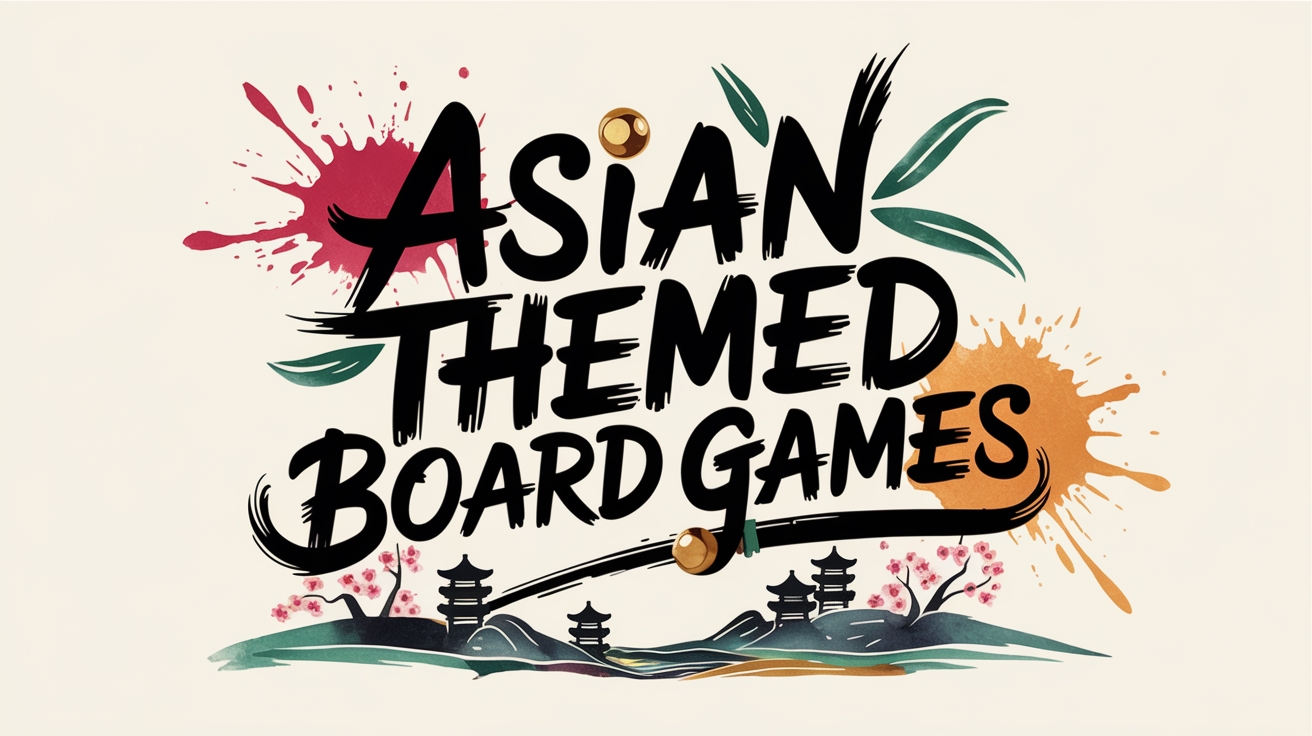Plant-themed board games form an engaging tabletop niche, converting botanical concepts into strategic challenges where players cultivate resources, expand territories, or collect specimens. Games like “Photosynthesis” and “Herbaceous” offer varying mechanics and interaction levels. Despite their approachable themes, these games deliver sophisticated experiences that reward planning and adaptability—qualities increasingly valued by serious gamers.
Key Takeaways
- “Photosynthesis” offers strategic depth as players position trees to capture sunlight while blocking opponents’ growth opportunities.
- Botanical board games combine educational value with engaging gameplay by incorporating real plant science and environmental themes.
- “Herbaceous” delivers quick, accessible plant-themed gameplay with beautiful illustrations, making it perfect for casual gaming sessions.
- Plant-themed games appeal to diverse audiences, from gardening enthusiasts to strategic gamers seeking nature-inspired competitive experiences.
- “Verdant” challenges players to arrange houseplants and create optimal growing conditions, balancing aesthetics with strategic point-scoring.
Trending Botanical Tabletop Games
The recent renaissance of botanical tabletop games has cultivated a fertile ecosystem where strategic depth intertwines with environmental themes. Titles like “Photosynthesis” challenge players with light competition mechanics, while “Verdant” engages with spatial puzzles that mirror actual plant care considerations. These Cozy Board Games appeal to both casual enthusiasts and serious strategists seeking thoughtful engagement.
- “Photosynthesis” requires players to position trees strategically to capture sunlight while blocking opponents
- “Herbaceous” delivers quick, accessible gameplay perfect for social gatherings while maintaining botanical accuracy
- “Verdant” combines room arrangement with plant cultivation, creating multi-layered decision pathways
The game mechanics often reflect real-world botanical principles, creating an educational dimension without sacrificing entertainment value. This emergent genre satisfies the growing desire for tabletop experiences that connect players with nature while providing substantive strategic challenges.
Botanist’s Card Collection
Meticulous collectors and strategic minds converge around the Botanist’s Card Collection genre, where taxonomic knowledge meets tactical gameplay. These illustrated cards showcase diverse plant species—trees, flowers, and herbs—each containing educational facts about habitats, uses, and unique characteristics that improve players’ botanical literacy.
The collection mechanic empowers players to create combinations based on strategic criteria to score the most points. Arrangements might prioritize ecological relationships or plant families, requiring thoughtful decision-making and foresight. The varying rarity levels of cards introduce competitive dynamics, with some specimens being particularly elusive and valuable.
Beyond entertainment, these collections subtly promote environmental conservation awareness, inviting players to appreciate biodiversity and sustainability principles. The fusion of scientific accuracy and engaging gameplay makes these collections appealing to both casual gamers and dedicated plant enthusiasts.
Verdant: Home Plant Paradise
From broad taxonomic collections, the botanical gaming world narrows its focus to the intimate scale of interior greenery with Verdant: Home Plant Paradise. This spatial puzzle game invites 1-5 players to create the coziest spaces through strategic placement of beautifully illustrated plant cards and wooden leaf components.
Within a compact 30-45 minute timeframe, participants aged 10+ manipulate their botanical collections, establishing beneficial adjacencies that maximize both function and aesthetic appeal. The tactile interaction with game elements liberates players from digital constraints, nurturing a love for actual spatial reasoning rather than abstract victory conditions.
Verdant’s soothing color palette and engaging mechanics make it similarly compelling for solitary contemplation or social gatherings, allowing plant enthusiasts to translate their passion into competitive yet relaxing gameplay that mirrors the satisfaction of cultivating a real-life indoor garden sanctuary.
Photosynthesis: Solar Strategy Game
Towering above most ecological games in strategic depth, Photosynthesis transforms natural plant growth cycles into a competitive tableau where players maneuver their arboreal empires across a shifting solar terrain. This 2-4 player experience unfolds through alternating Photosynthesis and Life Cycle phases as competitors take turns strategically positioning their trees to capture precious light energy.
The game’s brilliance lies in its shadow mechanics—larger trees block sunlight from smaller ones, creating territorial dynamics that reward forward planning. Players must navigate this ever-changing environment as the sun revolves around the board three times before concluding. The colorful, tactile tree components enrich immersion in this 30-60 minute contest of environmental strategy.
Victory hinges on accumulating the most points at the end through ideal tree placement and timing of the full growth cycle from seed to towering forest.
Arboretum: Tree Collection Strategy
Arboretum challenges players with deceptively complex hand management in a game where beauty and strategy intertwine. In this 2-4 player contest, participants compete to create visually stunning paths of ascending-value tree cards while closely monitoring opponents’ collections.
Players must make calculated decisions with each turn: which cards to play in their arboretum, which to take into their hand, and which to discard. The game’s brilliant tension emerges from its scoring mechanism—you must retain certain tree types in your final hand to score paths you’ve built. This creates a constant internal struggle between playing valuable cards and holding them for end-game dominance.
With ten beautifully illustrated tree species and a brisk 30-minute playtime, Arboretum delivers remarkable strategic depth while remaining accessible. Every card placement becomes a critical decision in this garden of tactical possibilities.
Herbaceous: Herb Collecting Competition
Delicate herbs and careful timing form the foundation of Herbaceous, a charming set-collection game designed by Eduardo Baraf, Steve Finn, and Keith Matejka. This herb collecting competition accommodates 1-4 players in quick 15-20 minute sessions.
Players try to maximize points by strategically harvesting and potting herbs from a shared community garden. The game’s core tension emerges from deciding precisely when to pot herbs—wait too long and opponents might claim valuable specimens. Each of the four containers employs unique scoring mechanisms, demanding different herb combinations for ideal results.
The beautiful illustrations by Beth Sobel and Benjamin Shulman capture the essence of gardening, appealing to plant enthusiasts while enhancing gameplay. Herbaceous combines accessible mechanics with meaningful decisions, creating a competitive yet relaxing experience where timing and foresight determine the master gardener.
Wildcraft: Herbal Adventure Game
Nature-based education takes center stage in Wildcraft, a cooperative herbal adventure game designed for 1-4 players ages 4 and up. Unlike competitive card games, Wildcraft emphasizes teamwork as players journey through challenges while gathering 25 different medicinal herbs.
The game’s strategic depth emerges as participants must decide which herbs to collect and how to utilize them effectively against obstacles. This decision-making process teaches practical knowledge about plant properties—skills that extend beyond gameplay into real-world applications like creating herbal tea remedies.
Wildcraft strikes an impressive balance between entertainment and education, allowing families to absorb botanical wisdom while engaged in purposeful play. The cooperative mechanics encourage communication skills as players coordinate their herb-gathering efforts. For those seeking both liberation from screen-based entertainment and connection with traditional plant knowledge, Wildcraft delivers a refreshing immersion into botanical wisdom.
Bonsai: Miniature Tree Mastery
The ancient art of bonsai cultivation finds elegant translation in Bonsai, a tile-laying game that challenges 1-4 players to construct miniature tree masterpieces through strategic placement decisions. Players select from beautifully illustrated tiles, each representing different tree elements, to create unique arboreal compositions.
What readers love about this game is its accessibility—quick setup and fast-paced turns guarantee fluid gameplay without sacrificing depth. Each player must place cards thoughtfully, considering spatial relationships that maximize aesthetic appeal while fulfilling strategic objectives. Owing to its straightforward mechanics yet intellectually stimulating nature, the game appeals similarly to plant enthusiasts and seasoned gamers.
The charming artwork and emphasis on individual expression make Bonsai a refreshing addition to plant-themed tabletop experiences, offering both competitive elements and relaxing creative fulfillment.




